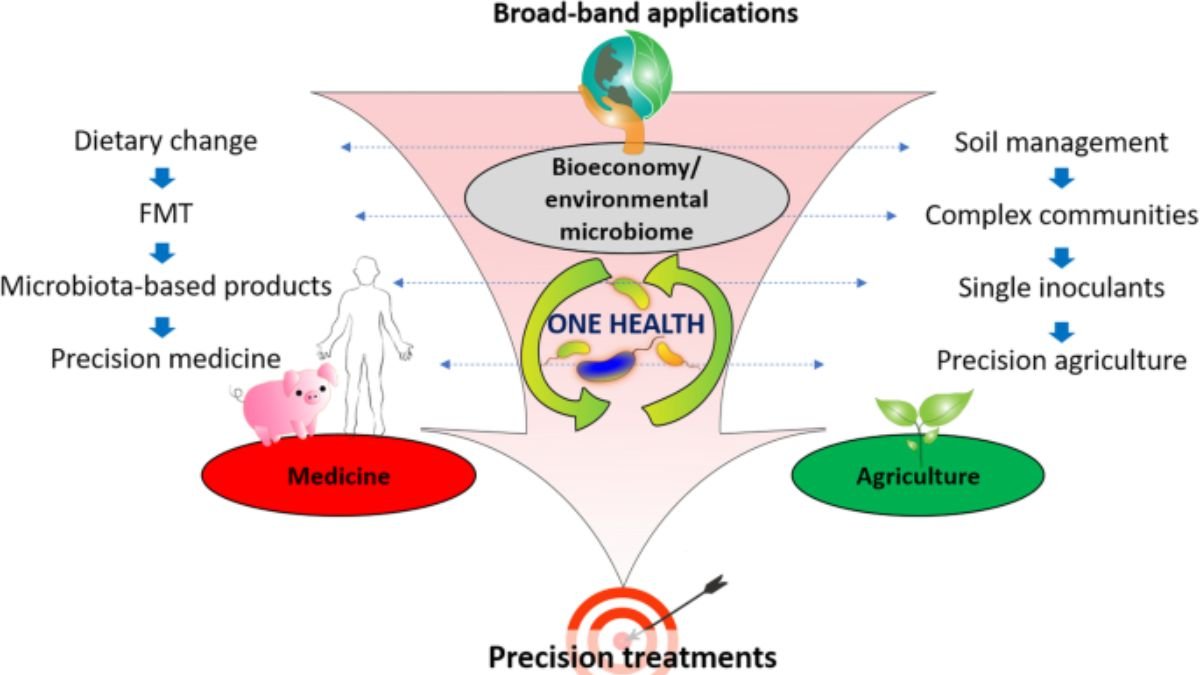Today’s modern medical science is no longer limited to medicines and surgery. The new direction of understanding the human body has now moved towards the world we call the microbiome. The microbiome is a vast world of millions of microorganisms living inside and outside our body. These microorganisms – such as bacteria, viruses, fungi and other micro-organisms – have a profound impact on our health, digestion, immune system, even mental health. In recent years, scientific research has shown that the microbiome is not only associated with our disease but it also determines our health and the effectiveness of medicines.
Let us understand in detail how microbiome research is bringing a new revolution in the field of medicine.
What is the microbiome and why is it important?
The microbiome is a collection of all the microorganisms living in our body. It is mainly present in the intestines (gut microbiome), skin, lungs and mouth.
- The intestinal microbiome is the most influential because it plays an important role in digesting food, absorbing nutrition and strengthening the immune system.
- Scientists believe that about 70% of our immune system is controlled by the microbiome present in the intestines.
Therefore, if it remains balanced then we remain healthy, and if it becomes unbalanced then diseases can attack us rapidly.
Microbiome linked to diseases
Earlier doctors used to associate diseases only with external causes or genetic reasons. But now research has proved that the imbalance of microbiome is also the root cause of many serious diseases, such as:
- Obesity and diabetes – Bad microbiome increases insulin resistance.
- Heart disease – Bad bacteria in the intestines can increase the risk of heart disease.
- Mental health – The ‘Gut-Brain Axis’ shows that our intestines and brain are connected. If the intestines are unhealthy, problems like depression and anxiety can increase.
- Cancer – Some types of bacteria contribute to the growth of cancer cells.
In this way, the microbiome is not only linked to digestion but almost every area of health.
Role in Personalized Medicine
The medicine of the future has now moved beyond the idea of “one medicine for all”. Microbiome research has shown that every person’s body and its microbial world is different.
- Why does the effect of a drug differ on one patient and another?
The answer lies in the microbiome. - Now doctors can understand the patient’s microbiome composition and decide the medicine and treatment accordingly.
This is called personalized medicine, and it is proving to be extremely useful in everything from cancer treatment to mental health.
Probiotics and prebiotics – natural cures
Nowadays you must have often heard about “probiotic” yogurt or supplements. These are foods that help increase good bacteria.
- Probiotics: live good bacteria, such as yogurt, kimchi, kefir.
- Prebiotics: foods rich in fiber, which are food for good bacteria, such as bananas, garlic, onions.
Research has proved that these not only improve digestion but also strengthen the immune system and mental health. In the coming times, doctors will give more importance to probiotics and prebiotics as part of the treatment of diseases.
Deep relationship between cancer and microbiome
Microbiome is also playing an important role in cancer treatment such as immunotherapy. It has been observed many times that patients whose gut microbiome was balanced were responding better to immunotherapy. In contrast, those whose microbiome was unbalanced had less effect of treatment.
Scientists are now working on increasing the success rate of cancer treatment by balancing the microbiome.
Gut-brain connection – impact on mental health
Did you know that our gut (intestines) and brain communicate with each other? This is called the “gut-brain axis”.
- Intestinal bacteria help make neurotransmitters like serotonin and dopamine.
- These are the same chemicals that control our mood and sense of happiness.
This is why when our gut is not healthy, we often feel sad, tired and stressed. This is why microbiome research is now being used to treat depression and anxiety as well.
Antibiotics and the threat to the microbiome
Antibiotics are life savers, but their excessive use severely damages our microbiome.
- It kills both good and bad bacteria.
- The result is that the immune system becomes weak and digestion gets disturbed.
Microbiome research is now working on how to keep the good bacteria safe even while using medicines.
Medicine of the future – Microbiome based treatment
Some new experiments being developed keeping the microbiome in mind are as follows:
- Fecal microbiota transplant (FMT): Transplanting the gut microbiome of a healthy person into a sick person.
- Microbiome engineering: Treating the disease by developing bacteria with special genes.
- Microbiome testing kits: Testing the gut health of the patient and preparing special diet and medicine for him.
All these experiments will completely change the picture of the medical field in the coming times.
